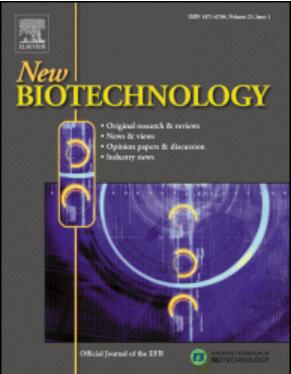开源抗体是提高研究可重复性和透明度的途径
IF 4.9
2区 生物学
Q1 BIOCHEMICAL RESEARCH METHODS
引用次数: 0
摘要
抗体是生物医学研究中具有多种用途的重要工具。然而,开放获取具有明确分子特征的抗体的可靠来源仍然是研究透明度和可重复性的障碍。我们在此建议社区转向开源抗体,类似于开源计算机软件。这类抗体的原则是:1)研究人员可以随时使用,2)抗体的可再生来源(如杂交瘤细胞或质粒)也可以广泛获得,确保相同抗体的可重复性和成本效益,3)抗体序列是公开的。满足这些标准,抗体可以广泛使用与分子定义试剂相关的透明保证,代码可以编辑以产生抗体变体,以满足研究人员的特定需求。我们(UC Davis/NIH NeuroMab Facility, Development Studies Hybridoma Bank和Addgene)已经建立了一个联盟,为大量具有良好特征的抗体提供开源访问。由于开源软件对用户和开发者都有好处,我们认为开源抗体将对基于抗体的生物医学研究产生类似的积极影响。我们鼓励资助机构支持扩大获取开源抗体资源的举措,鼓励研究人员利用这些资源并为之做出贡献,以实现更可靠、更经济的研究目标。本文章由计算机程序翻译,如有差异,请以英文原文为准。
Open-source antibodies as a path to enhanced research reproducibility and transparency
Antibodies are important tools with diverse uses in biomedical research. However, open access to reliable sources of well-characterized antibodies with unambiguous molecular identities remains an obstacle to research transparency and reproducibility. We propose here a community shift towards open-source antibodies, analogous to open-source computer software. The tenets of such antibodies are that 1) they are available to researchers in a ready to use form, 2) the renewable source of the antibody (e.g., hybridoma cells or plasmid) is also widely available ensuring reproducible and cost-effective access to the same antibody, and 3) the antibody sequence is publicly available. With these criteria met, the antibody can be widely used with the transparent assurance associated with a molecularly defined reagent, and the code can be edited to generate antibody variants to meet researchers’ specific needs. We (the UC Davis/NIH NeuroMab Facility, the Development Studies Hybridoma Bank, and Addgene) have established a consortium to provide open-source access to a large collection of well characterized antibodies. As open-source software has benefitted both users and developers, we suggest open-source antibodies will have a similar positive impact on antibody based biomedical research. We encourage funding agencies to support initiatives to expand access to open-source antibody resources, and researchers to both utilize and to contribute to them, with a goal of enabling more reliable and cost-effective pursuit of research.
求助全文
通过发布文献求助,成功后即可免费获取论文全文。
去求助
来源期刊

New biotechnology
生物-生化研究方法
CiteScore
11.40
自引率
1.90%
发文量
77
审稿时长
1 months
期刊介绍:
New Biotechnology is the official journal of the European Federation of Biotechnology (EFB) and is published bimonthly. It covers both the science of biotechnology and its surrounding political, business and financial milieu. The journal publishes peer-reviewed basic research papers, authoritative reviews, feature articles and opinions in all areas of biotechnology. It reflects the full diversity of current biotechnology science, particularly those advances in research and practice that open opportunities for exploitation of knowledge, commercially or otherwise, together with news, discussion and comment on broader issues of general interest and concern. The outlook is fully international.
The scope of the journal includes the research, industrial and commercial aspects of biotechnology, in areas such as: Healthcare and Pharmaceuticals; Food and Agriculture; Biofuels; Genetic Engineering and Molecular Biology; Genomics and Synthetic Biology; Nanotechnology; Environment and Biodiversity; Biocatalysis; Bioremediation; Process engineering.
 求助内容:
求助内容: 应助结果提醒方式:
应助结果提醒方式:


